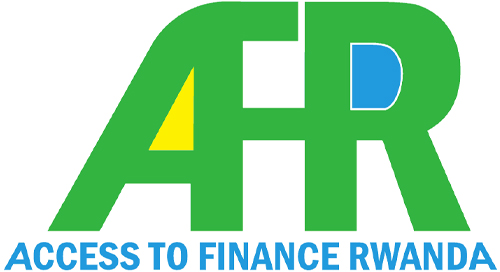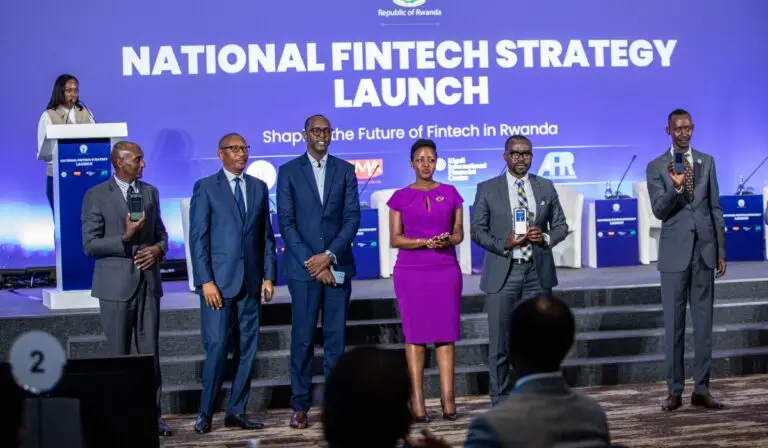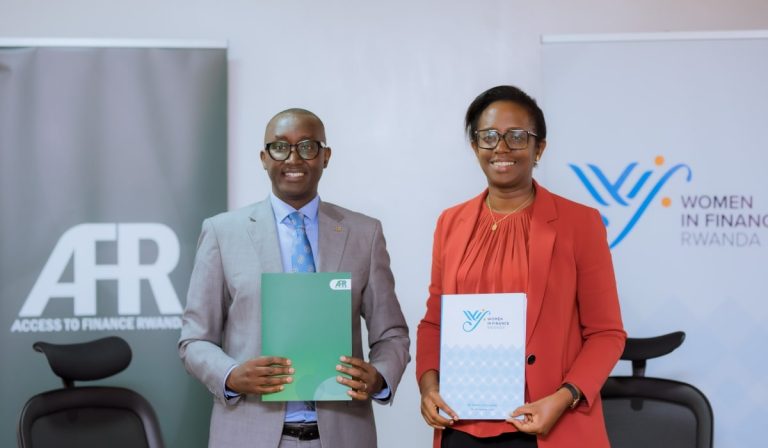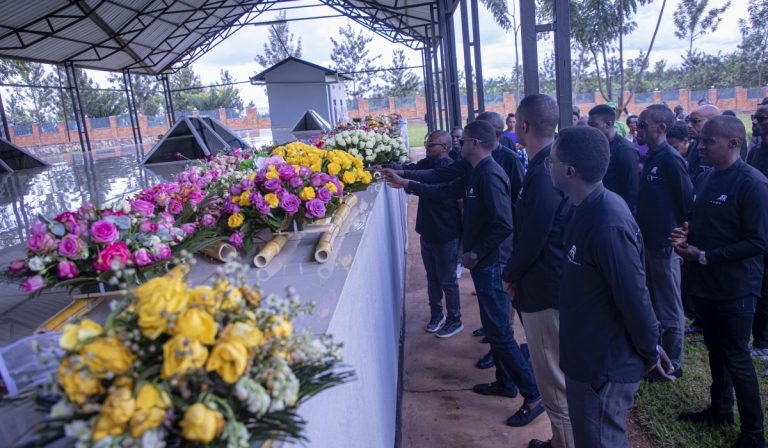Kigali, May 29, 2020 – The Ministry of Finance and Economic Planning in partnership with Access to Finance Rwanda (AFR) today launched the 2020 FinScope Survey Report, a yardstick that measures how Rwandans are financially included and progress made towards narrowing gaps.
The survey conducted in 2019/20 highlights the state of Financial Inclusion in Rwanda and the progress made in narrowing the gap in reaching the Government of Rwanda’s 2024 target of 100% financial inclusion.
Given the crucial role of financial inclusion in the national agenda, priority should be aimed at strategies that increase and deepen financial inclusion. To do so, it is imperative that these interventions are specifically targeted, and evidence based. It is in pursuit of this objective that the Rwandan Government in partnership with AFR initiated the fourth FinScope 2020 consumer survey.
According to the 2020 survey, 93% of Rwandans (about 7 million adults) are financially included in terms of accessing and using both formal and informal financial products. Levels of financial inclusion vary from 99% in Gasabo district to about 83% in Rusizi district. Over the years, the gender gap in financial inclusion is closing with only 8% of women excluded compared to 7% among their male counterparts.
The youth population, within the age range of 16 – 24 years, is the most financially excluded at 18%, significantly higher than the overall average of 7% exclusion.
About 77% of the Rwandan population (about 5.5 million adults) access and use formal financial products, including those that are provided by the banking sector and other from formal but non-bank financial institutions such as insurance firms, mobile network operators, NGOs etc.
The informal sector continues to play a significant role in financial inclusion and increasing product portfolio choices with about 78% of adults in Rwanda using informal financial services mainly through saving groups.
“Financial inclusion is one of the core drivers of an inclusive economy and Government has invested significantly in removing systemic barriers to the uptake of financial services. The FinScope survey shows that there has been tremendous improvement in financial inclusion. The work is not over yet. The objective is to achieve 100% financial inclusion by 2024 so I encourage everyone involved to keep the momentum.” Said Dr. Uzziel Ndagijimana, the Minister of Finance and Economic Planning.
The FinScope Rwanda survey is a nationally representative demand-side survey implemented by AFR to address the need for credible financial sector information. It provides insights to guide policymakers and regulators in terms of how to address or respond to existing challenges, monitoring and reviewing the financial inclusion target.
The first FinScope Rwanda Survey was led by the Ministry of Finance in 2008, driven by a lack of credible information to guide policy interventions and financial service providers in their efforts to expand the reach and depth of the Rwanda financial system. AFR, on behalf of the government commissioned follow-up surveys in 2012, 2016, and 2020. The later illustrates how many adult Rwandans are financially included, specifically aligning the levels of inclusion to the revised National Financial Inclusion Strategy (NFIS) and to report any changes since the last FinScope survey.
Access to Finance Rwanda (AFR) is a Rwandan not-for -profit organisation, with a strategic focus of stimulating financial sector development by collaborating with financial institutions and other stakeholders to increase access to and use of financial services. The organisation does this by identifying and addressing constraints that prevent the financial market from reaching Rwanda’s low-income population and promoting innovations and learning that results in sustainable change within the financial sector. Improving access to financial services for the rural poor and women is a particular focus for AFR.
You can find the full Finscope Survey 2020 Report here



